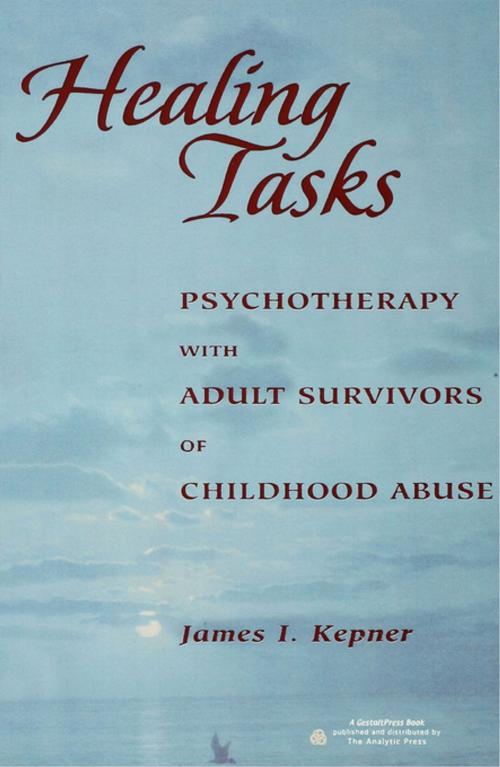Healing Tasks
Psychotherapy with Adult Survivors of Childhood Abuse
Nonfiction, Health & Well Being, Psychology, Applied Psychology, Psychotherapy| Author: | James I. Kepner | ISBN: | 9781135060763 |
| Publisher: | Taylor and Francis | Publication: | June 17, 2013 |
| Imprint: | Gestalt Press | Language: | English |
| Author: | James I. Kepner |
| ISBN: | 9781135060763 |
| Publisher: | Taylor and Francis |
| Publication: | June 17, 2013 |
| Imprint: | Gestalt Press |
| Language: | English |
This groundbreaking book presents a new model for working with survivors of abuse and other trauma. The Healing Tasks Model, based on developmental stages of healing with specific tasks for each stage, offers the clinician new support for threading through the sometimes overwhelming complexities of the survivor's experience. At the same time, Kepner's model helps to avoid some of the common pitfalls and risks of work in this most challenging of clinical areas, such as pushing clients to express and remember before they have developed the capacity to manage such intensity, or encouraging confrontation and interpersonal interactions that the survivor doesn't yet have the developmental underpinnings to support.
Using the Healing Tasks Model the clinician will find techniques for helping clients develop emotional and systemic supports, manage feelings, and set appropriate boundaries. Readers will also find a guide to dealing with the difficult and troubling issues of memory: how to approach abuse memories, when and how to take action based on abuse memories, when to defer action pending the development of more supports and capacities for the survivor, and then how to develop those essential supports and capacities.
Written for psychotherapists, psychologists, psychiatrists, social workers, counselors, pastoral counselors, and adult survivors of childhood abuse, Healing Tasks provides a therapeutic model that can be used to help abuse survivors develop the emotional skilles to lead richer and more fulfilling lives.
This groundbreaking book presents a new model for working with survivors of abuse and other trauma. The Healing Tasks Model, based on developmental stages of healing with specific tasks for each stage, offers the clinician new support for threading through the sometimes overwhelming complexities of the survivor's experience. At the same time, Kepner's model helps to avoid some of the common pitfalls and risks of work in this most challenging of clinical areas, such as pushing clients to express and remember before they have developed the capacity to manage such intensity, or encouraging confrontation and interpersonal interactions that the survivor doesn't yet have the developmental underpinnings to support.
Using the Healing Tasks Model the clinician will find techniques for helping clients develop emotional and systemic supports, manage feelings, and set appropriate boundaries. Readers will also find a guide to dealing with the difficult and troubling issues of memory: how to approach abuse memories, when and how to take action based on abuse memories, when to defer action pending the development of more supports and capacities for the survivor, and then how to develop those essential supports and capacities.
Written for psychotherapists, psychologists, psychiatrists, social workers, counselors, pastoral counselors, and adult survivors of childhood abuse, Healing Tasks provides a therapeutic model that can be used to help abuse survivors develop the emotional skilles to lead richer and more fulfilling lives.















